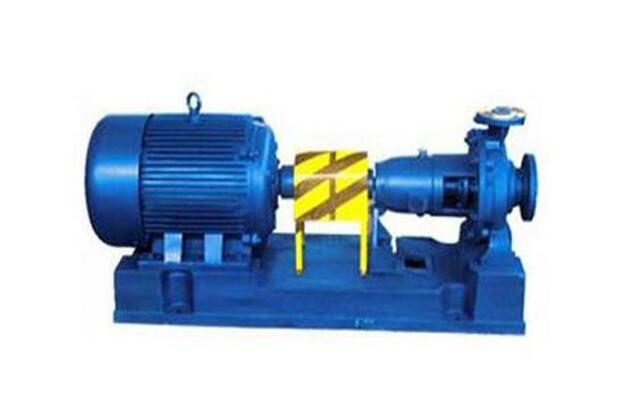The four major pumps used in the chemical industry
Pumps are the mainstay of industry and are used in many different applications in various industries. These include oil and gas, petrochemicals, food and beverage, and chemical processing industries.
Operators in these industries have a wide choice of pumps. Many popular types of pumps are adequate for most applications in the chemical industry. However, sometimes pumps need to work under extreme conditions, especially when liquids contain solids and fibrous materials that make them difficult to pump.
Pump selection matters needing attention
Many different types of pumps are used in the chemical processing industry. The choice of pump depends on the properties of the liquid to be treated, including viscosity, corrosiveness and abrasion. Liquid-gas mixtures need pumps that can handle them effectively without causing production shutdowns or pump failures. Liquids containing large amounts of solid material require strong pumps to withstand harsh conditions and efficiently transport the mixture.
Liquid properties also play a key role in selecting structural materials for pumps. Corrosion is a major consideration in the chemical industry and the materials used in the pump structure must be compatible with the medium to be pumped. For example, highly corrosive liquids such as acids require the use of stainless steel in pump construction.
The type of pump used in the chemical industry
Centrifugal pumps: these are the most commonly used types of pumps in the chemical industry. They are efficient pumps, simple to design and operate, and generally cheaper than other types of pumps.
All centrifugal pumps draw liquid into the impeller through suction, resulting in a vacuum. This characteristic also makes centrifugal pumps prone to cavitation, especially at low inlet pressure. The main disadvantage of a centrifugal pump is that it has poor suction and needs to be ready to start pumping.
Positive displacement pumps: these are all types of rotary pumps, including gear, screw, rotary vane and piston pumps. They are more efficient at moving high viscosity fluids than centrifugal pumps and can provide high pump pressure. Positive-displacement pumps also move fluids with low steam pressure, which flow at lower speeds and create greater resistance.
Diaphragm pumps: these are also positive displacement pumps that move liquids or liquid-gas mixtures through reciprocating membranes. Compared with other types of positive displacement pumps, they have many advantages. First, they don’t have any internal wear parts, which greatly reduces maintenance. They also do not require sealing or lubrication, eliminating the risk of oil vapor leaks and process fluid contamination.
Turbo pumps: these pumps have turbine-shaped blades with radially oriented teeth to move fluid. Turbo pumps combine the versatility of centrifugal pumps with the high discharge pressure of positive displacement pumps. However, they are not suitable for transporting liquids containing solids.
There are thousands of pumps on the market that fall into these categories and in most cases perform admirably. However, many of them have serious limitations when dealing with highly corrosive or abrasive fluids or liquids (such as pastes) with a high solid content. In addition to operating under harsh conditions, the chemical industry urgently needs to replace chemical pumps, such as EDDY pumps, which can handle the responsibilities of most of these types of pumps.
Pump in chemical industry of application
There is no doubt that the chemical industry is the most pump – dependent. Reliable pump performance is essential to ensure uninterrupted production. In addition, health and safety regulations must be ensured to protect workers and minimize the risk of damage to expensive equipment and catastrophic plant failures. These risks do not exist in other industries, which makes pump applications unique in the chemical industry.
The chemical industry produces a wide range of products, pumps are widely used in the oil and gas, petrochemical, chemical manufacturing, pharmaceutical, food and beverage industries. They are used for transferring and circulating liquids and for dosing applications. The requirements for pumps can be onerous, especially when pumping mixtures of high solids or liquids that are abrasive or highly corrosive. High temperatures and pressures complicate the process engineer’s problem of selecting the right pump for any particular application.
Pump corrosive and abrasive chemicals
Highly corrosive chemicals are used in many manufacturing processes as raw materials for final product manufacturing or to regulate the pH of mixtures to facilitate important chemical or biochemical reactions. Sulfuric acid is highly corrosive and is most commonly used in industry. It is used to make fertilizers and can cause severe skin and deep tissue damage.
Hydrochloric acid is another dangerous acid commonly used in pH balance processes. The acid can cause respiratory failure, cause serious damage to the eyes, and pose a major health risk to workers if allowed to escape. Concentrated bases such as sodium, calcium, and potassium hydroxide are also extremely corrosive and must be handled with care.
Handling these highly corrosive chemicals requires careful selection of pumps that ensure fluid sealing and control of any discharge. Pump seals are most vulnerable to corrosive chemicals. Process engineers must choose pumps strong enough to deal with these hazardous materials and prevent leakage.
Abrasive mixtures also present major pump problems. Solid particles in these mixtures can corrode internal pump assemblies and significantly degrade pump performance. In addition to corrosion, abrasive solids can cause pitting in pump materials, which can lead to corrosion problems. EDDY pump USES embedded impeller, with wear resistance.
Care must be taken to select suitable structural materials for handling corrosive or abrasive liquids. The material must be resistant to corrosion or abrasion by these liquids to minimize downtime and maintenance costs.
(The article comes from the Internet. If reprinting is not allowed, please contact our company to delete it.)

